Why women vote for Modi: BBC’s masterclass in bad faith journalism and shoddily-written non-fiction
I guess we should be glad that it's the British exchequer – which is no longer supported by loot from India – footing the bill for this superficial piffle.
Note: Somehow this led to a podcast.
It’s particularly interesting how an incompetent enviroment can become a launching pad for genius. Take the case of my favourite author Frederick Forsyth.
Would he have become an author if it hadn’t been for BBC’s (and the British government’s) gross mishandling of the Biafra War in Nigeria?
For the uninitiated, before he was dazzling us with tales about mercenaries and spies, Forsyth was a journalist. One of his assisgnments was as a BBC correspondent to 'report the all-conquering march of the Nigerian Army' in Biafra.
Refusing to toe the snobbish British propaganda, he sent an actual report about the Biafra War which led to rebukes from his seniors and the establishment. Disgusted, Forsyth quit and went to cover the war himself refusing to tout any side’s propaganda.
As he wrote: “I was told quite bluntly, then, "it is not our policy to cover this war." This was a period when the Vietnam War was front-page headlines almost every day, regarded broadly as an American cock-up, and this particularly British cock-up in Nigeria was not going to be covered. I smelt news management. I don't like news management.”
Very soon pictures poured in of the children suffering from acute protein deficiencies which showed the public – British and international – the depths to which the Harold Wilson government and BBC would go to cover up its own inadequacies as they armed and abetted a murdering tyrant.
Fed up with the media, Forsyth quit journalism and flirting with penury, wrote The Day of the Jackal – the prototype of the modern-day thriller. His subsequent novels would inspire Hollywood, spies and real-life mercenaries.
If it weren’t for the BBC’s venal behaviour, we probably would have been robbed off the joy of making the acquaintance of Messrs Calvin Dexter, Mike Martin, Carlo Shannon or John Preston. But this isn’t about Forsyth.
Growing up, one was often told that the BBC was the bulwark of journalism. Although it was a tax-payer-funded initiative of the British government, it was somehow completely neutral as opposed to other national media outlets. In essence, it was the same self-serving self-truth that the British tell themselves and which we - condemned to see the world through an Englishman’s eyes - also fell for.
In general, the idea of neutrality in journalism is quite preposterous. Humans can’t be neutral, we aren’t bots. Our internal biases, our political choices, our heuristic availability, and our lived experiences will always colour our vision of reality.
But sometimes, journalism is so detached from reality that it takes the form of shoddily-written non-fiction as demonstrated by this BBC piece titled: Why women vote for India PM Narendra Modi’s BJP which was so unintentionally hilarious that it made a serious case for the C in BBC to stand for Comedians.
So, why do women vote for ubermensch Modi? Based on the article, it’d be a toss-up between his immaculately turned-out personage or his 56-inch chest.
The ostensible report, without quoting a single female BJP voter, is held together by spit and comments from three experts. Now, one has nothing against experts and Nalin Mehta is one of the finest chroniclers of BJP’s rise in India. The New BJP is a must-read for anyone who wants to understand how a party that won two seats in 1984 came to dominate national politics three decades later.
But what’s hilarious is how the piece takes the biases and sensibilities of a highly liberal (read detached from reality) Western audience and shoehorns it in to explain a country as vast as India.

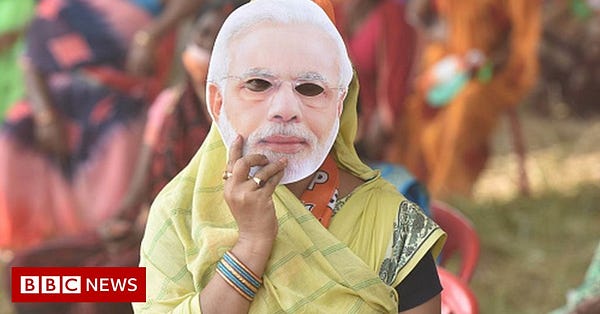
The piece states: “But in 2019, for the first time ever, BJP became the party with the highest number of female votes. Now, the BJP - like most Indian political parties - is hardly made up of feminists and has a world view that many women find unpalatable. Party leaders are often in the news for misogynistic remarks and some of its state governments have made global headlines for poor handling of rape cases.”
It adds: “Also, the longest and most vocal protests against the government's controversial citizenship law have been led by women. But despite this, data suggests that more women are voting for the BJP now. So how did the BJP become the party of choice for Indian women?”
No, BJP isn’t made up of feminists, but no Indian political party is. But, it’s a stretch to say that many women find BJP’s world view “unpalatable”.
Indians are largely conservative, religious and view family as a fundamental structure to hold society together. It’d be fair to say that both the BJP and Indian women are on the same page.
Nor are misogynistic comments by BJP leaders particularly unique, even though they do tend to get played up more in English media. Take for example, what India’s only female CM said about a minor who was raped and killed: “This story they are showing that a minor has died due to rape, will you call it a rape? Was she pregnant or had a love affair? Have they enquired? I have asked the police. They have made arrests. I was told the girl had an affair with the boy.”
From Mulayam Singh Yadav’s “boys will be boys” remark on rape to Azam Khan’s sartorial comments about an opponent’s choice of undergarments, no Indian politician is repping feminism.
In fact, Asaduddin Owaisi, India’s most prominent Muslim legislator once told Rajdeep Sardesai that he couldn’t meet his wife because that was against the norm.

In fact, the vast commentary that permeates our airwaves after every rape/suicide/murder case in India follows the same pattern – leaders condemn it when it takes place in a state ruled by a rival party and demonstrate a marked silence when it happens in states ruled by their own party. I have written about that in the past.
Some rapes/murders/suicides/riots are more equal than others. The piece also buys its own construct about the popularity of the Shaheen Bagh protests.

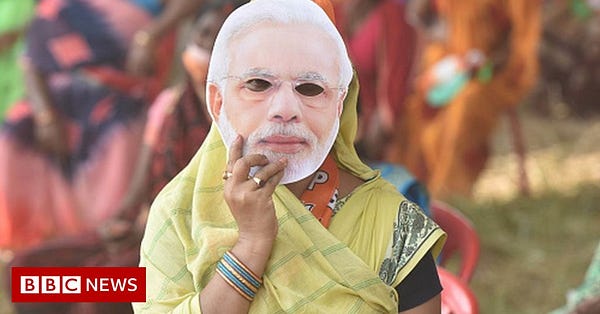
Ironically, the piece points out that in his very first address to the nation as PM, Modi appealed against female foeticide and condemned rape. He’s perhaps the first Prime Minister to talk about periods and toilets. It goes on to say BJP has also fielded more female candidates than any other party and has more female ministers than previous governments.
It fails to mention that Nirmala Sitharaman as Defence Minister (2017-19) and Finance Minister (2019 onwards) and before that the late Sushma Swaraj as External Affairs Minister (2014-19) held two of the four most important cabinet positions which is a precedent for a woman whose surname isn’t Gandhi.
It adds as an afterthought: “The government also built tens of millions of household toilets and helped millions of women open bank accounts so they could receive pensions, subsidies and other benefits directly.”
Adding the bit about toilets and bank accounts as an afterthought is the precise reason that foreign correspondents or anglicised Indians miss the woods for the trees.
Imagine you are a woman in a village in rural India who has never had electricity, a gas connection, a bank account, or a toilet. You have to walk out to the fields to perform your daily ablutions or cook in an indoor chulha spouting hazardous smoke. Anything you earn is taken away by a drunken husband.
And then suddenly thanks to the Ujwala Yojana, Swacch Bharat, the rural electrification project and Jan Dhan Yojana you have all of them.
Would you vote for another party in your lifetime?
Just the way Congress was the default party post-Independence (in many villages people only recognised the hand symbol), BJP is emerging as post-post-Independence party. And perhaps, we are already getting a glimpse of the post-Hindutva future with AAP’s exhortations about yoga and mandir trips.
People don’t vote for headlines; they exercise their franchise for a myriad number of reasons but at the very top is for someone who can make their lives better. In fact, BJP’s success with welfare schemes has started off a debate about a new kind of voter – laabh bhartis.

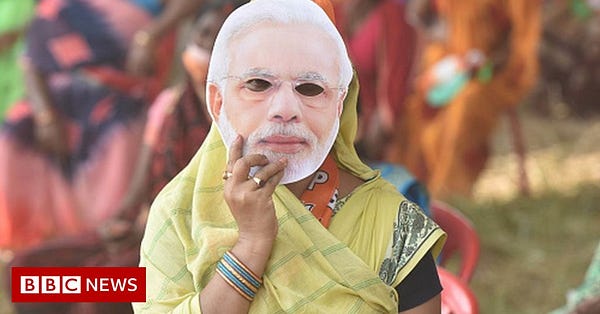
That the BBC misses this completely isn’t surprising given they presumably talk to the same five people in Khan Market to understand what’s happening in India and whose trips to rural India are reminiscent of British Royals visiting Commonwealth countries.
And piece ends with sigh of the oppressed pregnant with a flicker of optimism.
Hoping that Modi’s popularity wanes as he’s 71, the piece hopes with his fitness ‘fading’ and hopes “with communal violence getting out of hand” and the “economy getting worse” women who run the “home and hearth” would turn against him”.
An expert says: "That tipping point hasn't come yet, but it could."
I guess we should be glad that it’s the British exchequer – which is no longer supported by loot from India – footing the bill for this superficial piffle. On the other hand, we should still be grateful to BBC for Forsyth.

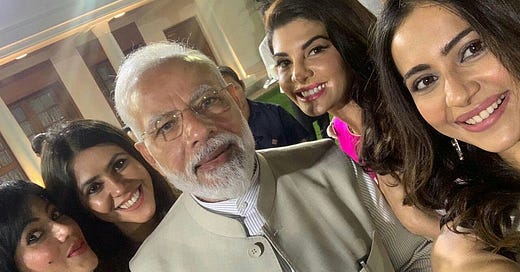



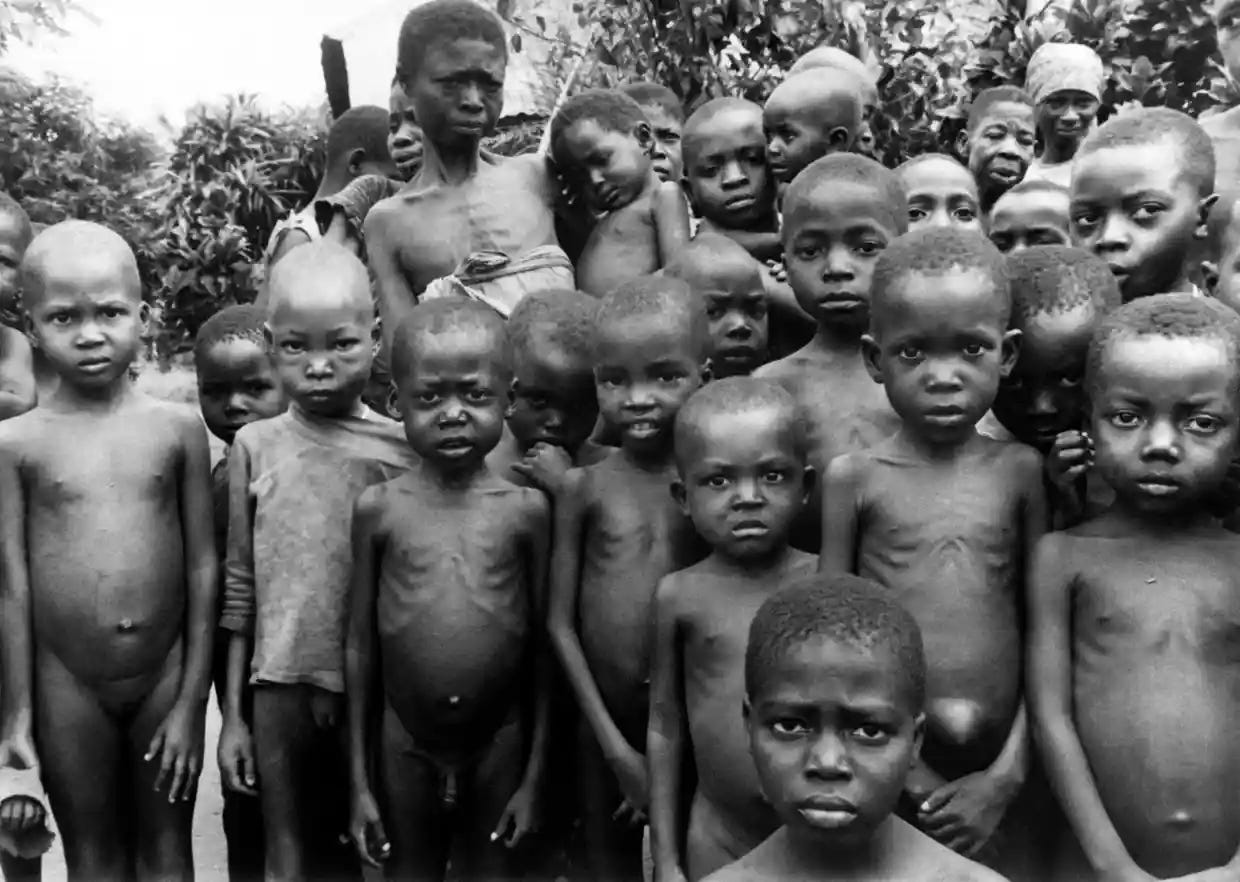




1. Hi5! I'm a huge Forsyth fan, too!
2. Kudos! Style and Substance, both on point! 👌🏻
loved it nirmalya bhaiya. thanks for pinning it again and bringing it to our notice. even though i am banned from twitter i still check you out once in a while using the login/signin blocker on mozila.